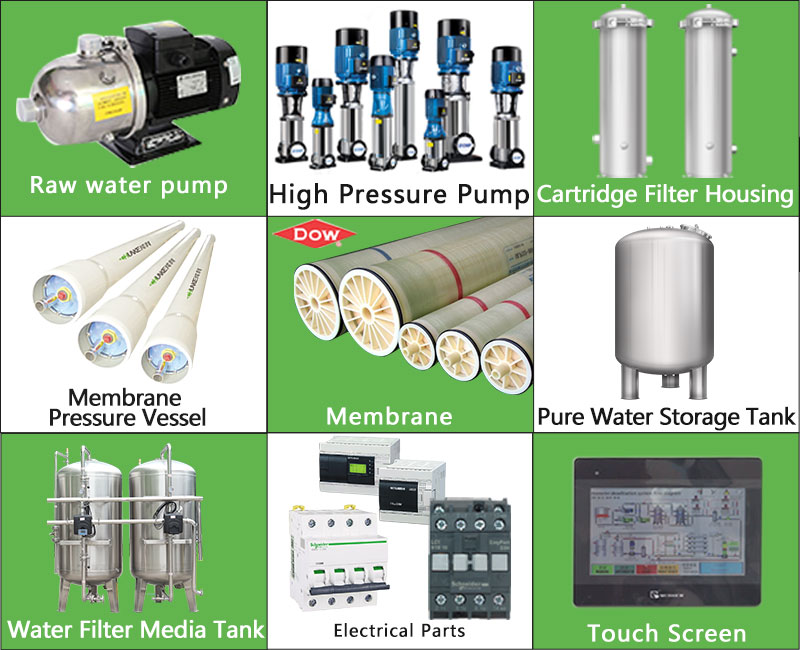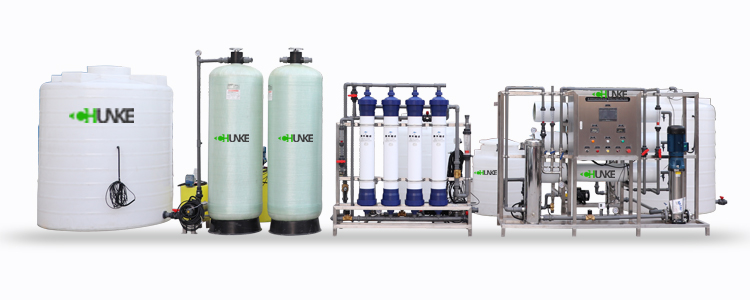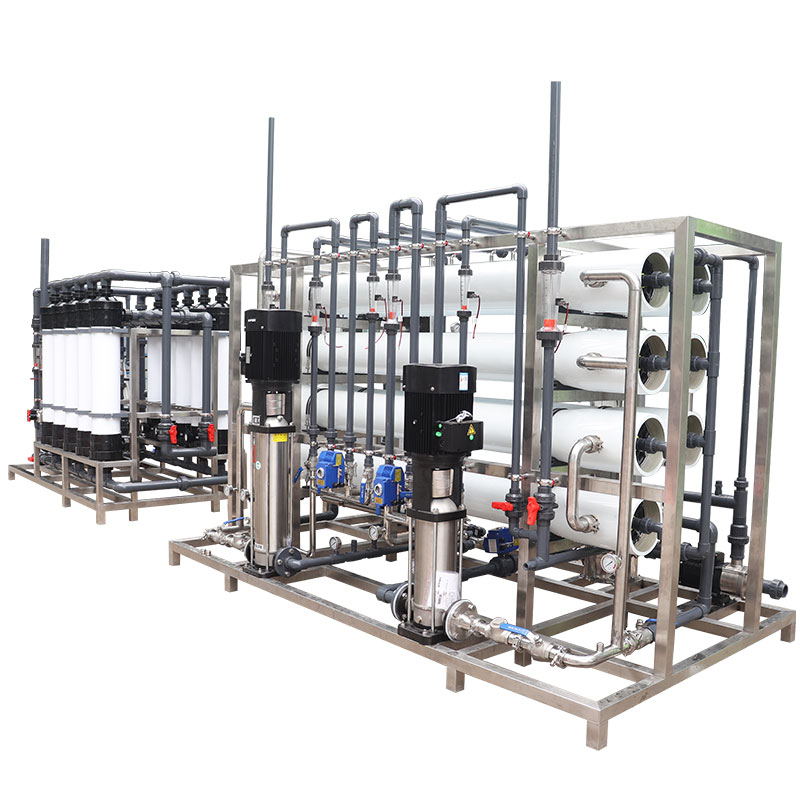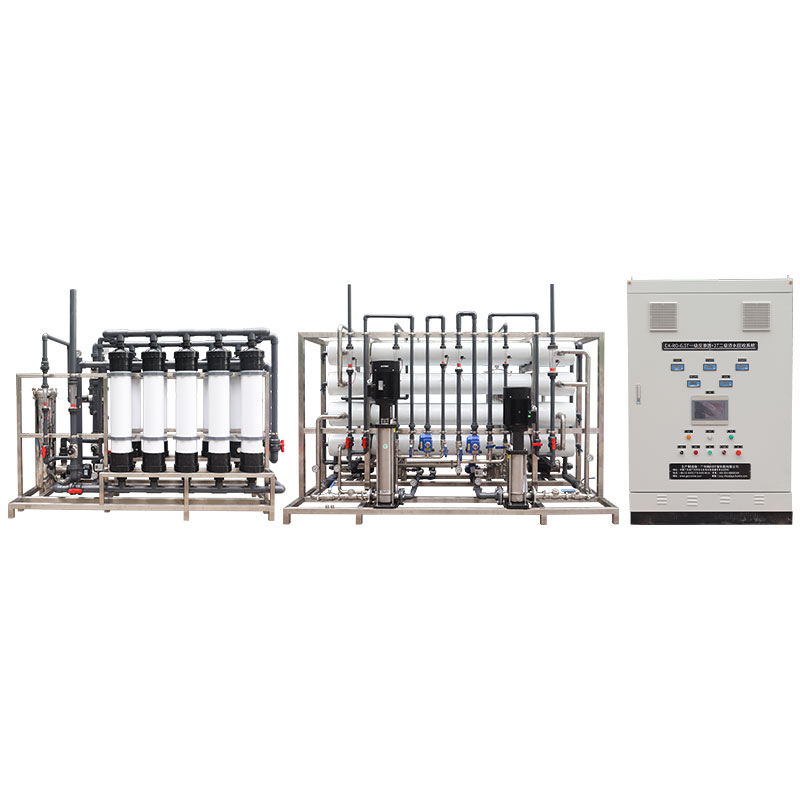Can water filters filter out E. coli? Can bacteria reproduce in it?
As a common indicator of water pollution, the presence of E. coli is directly related to the sanitation and safety of drinking water. In order to ensure the safety of drinking water, many homes and businesses have installed water filters.
So, can water filters effectively filter out E. coli? Will the environment inside the filter cause bacteria to reproduce? This article will explore these issues in detail.

How does a water filter work?
Water filters remove suspended matter, impurities, microorganisms and harmful chemicals from water by physical, chemical or biological methods. Common water filtration technologies include:
● Physical filtration: Use the pore size of the filter membrane or filter to intercept particulate matter and microorganisms in the water.
● Activated carbon adsorption: Activated carbon has a huge specific surface area and can adsorb organic matter and certain inorganic matter in the water.
● Ultraviolet disinfection: Use ultraviolet rays to irradiate the water flow, destroy the DNA structure of microorganisms, and thus kill bacteria and viruses.
● Reverse osmosis: Water is pressed into a semipermeable membrane under high pressure, and water molecules pass through the membrane pores, and dissolved salts and organic matter are retained on the other side of the membrane.

What types of water filters are there?
● Microfiltration and ultrafiltration: Through the filter membrane with a pore size of 0.1 to 0.01 microns, it can effectively remove suspended matter, bacteria and some viruses.
● Nanofiltration and reverse osmosis: The pore size is smaller, usually below 0.001 microns, and can remove most dissolved salts, heavy metals, bacteria and viruses.
● Activated carbon filter: Mainly used to adsorb organic matter, chlorine and odor, but cannot effectively remove bacteria and viruses.
● Ultraviolet filter: Specially used to kill bacteria and viruses in water, usually used in combination with other filtration technologies.

Can water filters effectively filter out Escherichia coli?
Characteristics of Escherichia coli:
Escherichia coli is a Gram-negative bacterium that is widely present in the intestines of humans and warm-blooded animals. Its diameter is about 0.5 to 2.0 microns. When it is transmitted through water, it can cause gastrointestinal diseases such as diarrhea and vomiting, and in severe cases, it may even be life-threatening. Therefore, ensuring that there is no Escherichia coli in drinking water is a basic requirement for ensuring drinking water safety.
Filtration effect of different types of filters on E. coli:
● Microfiltration and ultrafiltration: Because the pore size of the filter membrane is between 0.01 and 0.1 microns, it is enough to intercept E. coli. Microfiltration and ultrafiltration filters have high effectiveness in removing E. coli.
● Nanofiltration and reverse osmosis: The pore size is smaller, usually below 0.001 microns, and can completely remove most microorganisms and viruses including E. coli. It is one of the most effective water treatment technologies at present.
● Activated carbon filter: Although it has a good adsorption effect on organic matter and chlorine, it cannot effectively remove E. coli due to its large pore size. Therefore, activated carbon filters are usually used in combination with other filter membranes or ultraviolet disinfection technology.
● Ultraviolet filter: It can effectively kill E. coli in water by destroying the DNA of E. coli through ultraviolet irradiation, making it lose its ability to reproduce and infect. However, ultraviolet rays can only work within the range of irradiation, and are usually used in combination with physical filtration to ensure comprehensive water purification effect.
In summary, most modern water filters, especially microfiltration, ultrafiltration, nanofiltration and reverse osmosis systems, can effectively filter out E. coli and ensure the safety of drinking water.

Can bacteria reproduce in water filters?
Reasons for bacterial reproduction in filters:
● Untimely replacement of filter cartridges: Long-term use of filter cartridges will accumulate a large amount of organic matter and microorganisms. If they are not replaced in time, the surface of the filter cartridge may become a place for bacterial reproduction.
● Filter cartridge material and structure: Some filter cartridge materials, such as activated carbon, have rich pore structures and can absorb organic matter, which provides bacteria with the nutrients they need for reproduction.
● Environmental conditions: The humid environment inside the filter is suitable for bacterial growth. If the water temperature is high, it is more conducive to bacterial reproduction.
Measures to prevent bacterial reproduction in the filter:
● Regular replacement of filter cartridges: According to the manufacturer's recommendations and usage, replace the filter cartridge regularly to avoid organic matter accumulation and bacterial reproduction. It is generally recommended to replace the filter cartridge every 3 to 6 months.
● Regular cleaning and disinfection: Clean and disinfect the filter regularly to remove impurities and microorganisms on the surface of the filter cartridge to prevent bacteria from breeding in the filter. Special cleaning agents or disinfectants can be used for treatment.
● Use antibacterial filter elements: Select filter elements with antibacterial properties, such as filter elements containing silver ions, which can inhibit bacterial growth and extend the service life of the filter element.
● Install ultraviolet disinfection device: Install ultraviolet disinfection device at the water outlet of the filter to further kill bacteria that may remain after filtration to ensure water quality safety.
Conclusion
As an important equipment to ensure the safety of drinking water, water filters can effectively filter out harmful microorganisms such as E. coli and provide high-quality drinking water. However, consumers need to pay attention to regular maintenance and replacement of filter elements during use to prevent bacteria from breeding in the filter.






